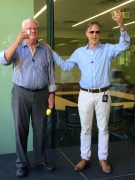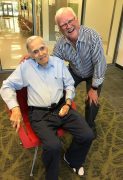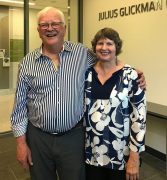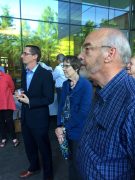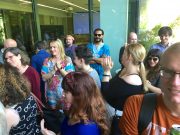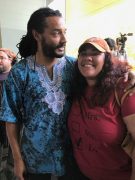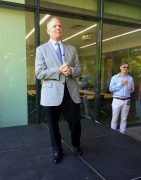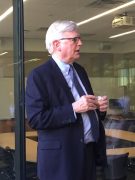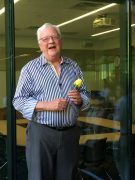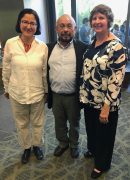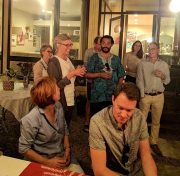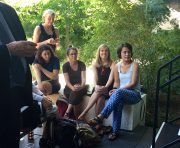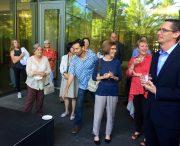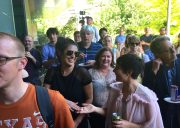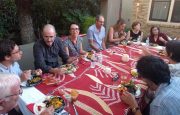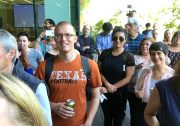by Karen Lee

On March 30, 2017, President Gregory L. Fenves released the University Diversity and Inclusion Action Plan (UDIAP). Within it, he describes the crystallization of policies that his administration has already put into action to promote diversity and inclusion at The University of Texas, as well as the inclusion of new initiatives outlined in the plan.
In March, I had the opportunity to participate in one particular ongoing initiative designed to train teaching assistants on cultivating inclusive classrooms. This essay offers my thoughts of the Inclusive Classroom Seminar in the context of a broader university-wide effort to live up to professed ideals of equality and inclusion.
The tables were positioned in a roundabout fashion so that graduate student participants from all divisions of the university could face one another as we talked about why we had decided to attend the two-day seminar. The atmosphere was serious as aspiring engineers, educational psychologists, physicists, microbiologists, historians, and sociologists spoke honestly about goals such as better facilitating difficult discussions, acquiring empowering language to engage our students, reflecting upon our biases, and setting inclusive classroom tones. More often than not, our own experiences with discrimination and bigotry were woven into our motivations for being at this seminar. Some spoke about their ordeals with sexism, others about their experiences with micro-aggressions, while other students talked about the continuous questioning of their knowledge and ability.
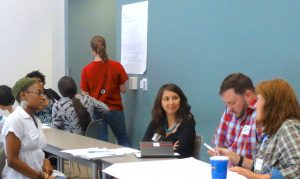
The facilitators came equipped with carefully prepared and theoretically informative material and led a two-day seminar designed to educate and facilitate discussions on identities, classroom climate, micro-aggressions, and self-awareness. During the seminar, we also participated in scenario reflections where we considered potential solutions and responses to a variety of situations. Situations ranged from leading classes in the aftermath of a bomb threat to grouping students in gender binary categories. They provided important information on cultivating inclusivity in our roles as teaching assistants across a number of dimensions including racial, LGBTQ, disability, veteran, and gender diversity. They also placed particular emphasis on reflecting upon our own biases, prejudices, and assumptions because as they said, “we may not be experts on all our students, but we are able to be experts on ourselves.” Overall, it was clear to me that the seminar was thoughtfully designed to provide participants with knowledge of diversity and inclusivity concepts and to have us reflect on our role as teaching assistants in building safe spaces for our students.
Though the seminar was helpful, it also exemplified a nagging concern of mine, which is that in this seminar and in other situations, conversations about diversity and inclusivity are stunted. Sometimes the conversations feel like everyone is stepping on egg shells. Other times it sounds like an orchestra of impressive rhetoric with no productive meaning. Then there are times when outrage and cynicism seem to exist simply to exist. That is not to say that feelings of outrage and cynicism are unwarranted. However, we also cannot expect to have productive conversations about equality and social justice when outrage and cynicism dominate the room.
It’s clear that the university must continue to ask the hard questions about discrimination and intolerance, refrain from a politics of appeasement, and decidedly move from their masterful grasp of diversity and inclusivity rhetoric and theory into real, substantive institutional change. However, I also recognize that in our position as students and citizens, we must constantly reflect on what diversity and inclusion truly are, how change can be achieved, and continuously articulate these ideas with sharp precision, clarity, and determination. Otherwise, institutional leaders and their constituents have unproductive conversations and change becomes befuddled in a sticky web of outrage and appeasement. Reflections about change are futile without action, but action is futile without reflection. Our collaborative efforts must not merely skim the surfaces of the problems. They must be given the appropriate resources and depth in attention to materialize into bold steps that powerfully advance our ideals of equality and social justice.
Karen Lee is a rising second-year doctoral student in the Department of Sociology. Her research interests center around race and ethnicity, inequality, and political sociology. She is currently conducting an analysis on the effects of race on public perception of protest.

